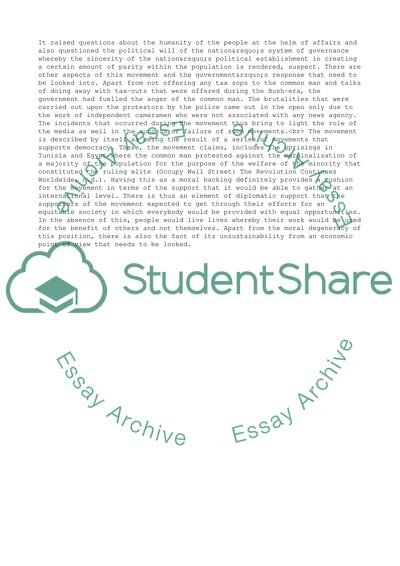Cite this document
(“2011 Occupy Wall Street Movement Research Paper”, n.d.)
2011 Occupy Wall Street Movement Research Paper. Retrieved from https://studentshare.org/business/1600955-2011-occupy-wall-street-movement
2011 Occupy Wall Street Movement Research Paper. Retrieved from https://studentshare.org/business/1600955-2011-occupy-wall-street-movement
(2011 Occupy Wall Street Movement Research Paper)
2011 Occupy Wall Street Movement Research Paper. https://studentshare.org/business/1600955-2011-occupy-wall-street-movement.
2011 Occupy Wall Street Movement Research Paper. https://studentshare.org/business/1600955-2011-occupy-wall-street-movement.
“2011 Occupy Wall Street Movement Research Paper”, n.d. https://studentshare.org/business/1600955-2011-occupy-wall-street-movement.


